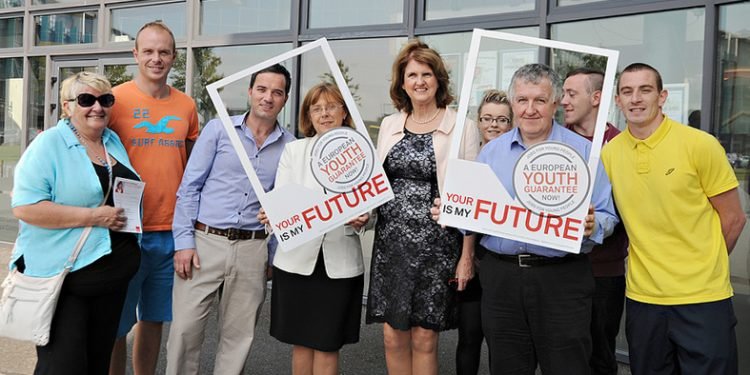Brussels (Brussels Morning) As the economic havoc brought about by the COVID-19 pandemic continues to disproportionally affect young people, EU countries welcomed the European Commission’s proposal for a Council recommendation which aims at reinforcing the existing Youth Guarantee.
The adopted initiative entails jobs, apprenticeships, traineeships as well as continuing education for young people, within four months of leaving formal education or becoming unemployed.
The recommendation “Bridge to Jobs”, tabled on 1 July, will replace the 2013 Council recommendation that originally established the Youth Guarantee. Under the new recommendation, the Youth Guarantee reaches out to a broader target group of up to 29-year-olds, rather than the previous 25-year-old limit.
Essentially, the EC’s proposal for a recommendation boosts the comprehensive “job support available to young people across the EU and makes it more targeted and inclusive”, particularly in light of the current challenges caused by the pandemic.
According to a survey by the International Labour Organisation (ILO) in partnership with the European Youth Forum, one-in-six people have stopped work since the onset of the COVID-19 crisis.
“The newly adopted recommendation aims to give young people every possible opportunity to develop their full potential, and to thrive in the world of work and beyond. It is backed by significant EU financing under NextGenerationEU and the future Multiannual Financial Framework (MFF),” Nicolas Schmit, Commissioner for Jobs and Social Rights, declared.
According to a Council statement, “the measures provided in the recommendation will be financed by EU funds, such as the European Social Fund Plus (‘ESF+’)” as well as by further investments from EU countries. The Recovery and Resilience Facility and REACT-EU will provide additional funding for youth employment measures within the bloc.
The revamped Commission’s recommendation also implements a more tailored approach by providing young people, in particular those who are vulnerable, with guidance suited to their individual needs as well as preparing them for the green and digital transition. One of the top priorities is to ensure that young people have adequate digital skills so as to increase their opportunities in the job market.
The NGO Eurodiaconia, a partner of the European Youth Forum and an advocate for social justice since 1997, has expressed some concerns about the poor attributes of the Youth Guarantee: “The low quality of Youth Guarantee offers is still one of the most significant flaws of the Youth Guarantee. Therefore, we join the European Youth Forum and others in the call for quality standards at European level to be developed to make the Youth Guarantee a success.”
Since 2014, over 3.5 million young people have registered each year with the Youth Guarantee and benefited from the programme. However, the scheme has shown its disadvantages as beneficiaries in some EU countries have complained about the low monthly allowances or even about the type of work that is given to them, claiming that it’s not the best preparation for entering the professional world.
A significant shortcoming of the programme relates to how each country decides on how to implement the Youth Guarantee scheme in order to achieve productive and successful results. Another deterrent is the underlying bureaucratic process, which often delays the accession procedure.




